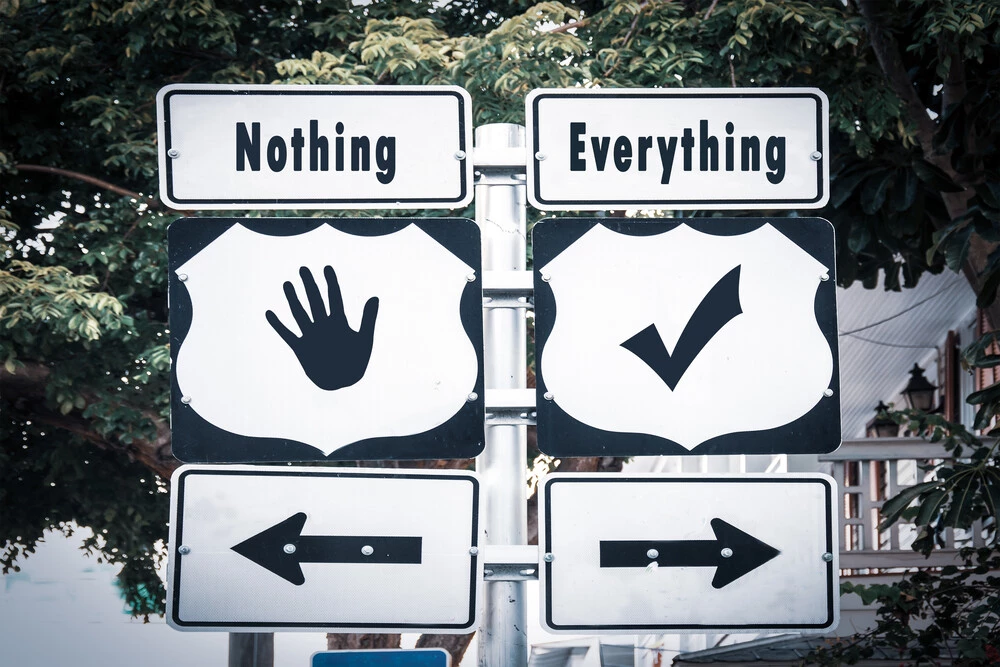In the rapidly evolving landscape of today’s society, the conversation surrounding substance misuse has undergone a transformative change. Historically, topics of addiction were often met with silence or judgment, embedded in misconceptions and stigma. However, as awareness grows, we’ve begun to view addiction not as a moral failing but as a medical challenge deserving of empathy and understanding. As the dialogue continues to mature, it’s paramount that we arm ourselves with the knowledge to recognize the early signs and symptoms of drug abuse.
Substance misuse frequently begins in seemingly innocent ways: a curiosity, peer influence, or even an attempt to self-medicate emotional pain. Often initiated as experimental use within social circles, the progression from casual use to dependency can be deceptively swift. Significantly, certain substances inherently possess a higher potential for dependency. Understanding the nuances of each and being able to identify early markers is crucial in preventing a descent into addiction.
This comprehensive blog post aims to serve as a beacon of knowledge, shedding light on the multifaceted signs of drug abuse. From the physical to the psychological, early indicators can often be subtle. Our goal is to empower our readers with a thorough understanding, allowing for timely interventions and, when necessary, the seeking of professional guidance. With this insight, we hope to foster a more compassionate approach to those grappling with these challenges, facilitating a path to recovery and support.
Valuable resources like Alcoholics Anonymous (AA), SMART Recovery, Al-Anon, Co-Dependents Anonymous (CoDA) stand ready to assist. Each of these organizations provides unique support structures, offering platforms for shared experiences, guidance, and pathways to recovery. The journey may not always be easy, but with the right resources and a supportive community, hope is always on the horizon.
The signs and symptoms of drug abuse are multifaceted and often complex. As we delve deeper into this topic in subsequent sections, remember that compassion, informed intervention, and a robust support system are vital components in addressing and ultimately overcoming the challenges of substance misuse. Whether you’re seeking knowledge for personal reasons, concern for a loved one, or purely educational purposes, understanding the signs is the foundational step in the journey toward awareness and healing.

How to Tell if Someone is on Drugs
Recognising the signs of drug use in someone you care about is a crucial first step. The challenge lies in the complexity of symptoms, which can vary widely from one individual to another. Understanding these signs is not just about observation but also about knowing what to look for. Early intervention can make a significant difference, often preventing the progression from misuse to addiction.
It’s important to note that while some signs may be subtle, others can be glaringly obvious. Either way, if you notice a pattern of unusual behaviour or physical changes, it may be an indication of drug use. In such cases, seeking expert advice is often the most effective course of action, complemented by the support of loved ones. Our admissions staff is available 24/7 to provide immediate assistance and guide you through the next steps towards recovery.
Signs & Symptoms: How can I tell if someone is using drugs?
When it comes to identifying drug use, signs can generally be categorised into three main groups: behavioural, mental, and physical. Each category presents its own set of indicators, making it crucial to observe for a combination of these signs.
Behavioural signs often manifest as changes in daily routines, neglect of responsibilities, or a sudden lack of interest in activities that were once enjoyed.
Examples include frequent tardiness, declining work or academic performance, and withdrawing from social or family events. Mental signs can range from mood swings and increased irritability to more severe symptoms like paranoia or hallucinations. Physical signs are perhaps the most noticeable, including bloodshot eyes, changes in appetite, unexplained weight loss or gain, and deteriorating physical appearance.
Common Physical Signs Someone is On Drugs
Physical signs of drug addiction can include weight loss or gain, deterioration of physical appearance, slurred speech, coordination problems, and changes in sleep patterns.
- Bloodshot Eyes: One of the most immediate and noticeable signs, often associated with various types of drug use.
- Changes in Appetite: A sudden increase or decrease in appetite can be indicative of substance abuse.
- Unexplained Weight Loss or Gain: Rapid changes in weight without a clear reason may be a red flag.
- Deteriorating Physical Appearance: Neglected grooming habits and a general decline in personal hygiene can be signs of drug use.
- Slurred Speech: Difficulty in articulating words or speaking in a coherent manner may suggest drug impairment.
- Unsteady Gait: A lack of coordination, stumbling, or difficulty walking can be indicative of drug use.
- Dilated or Constricted Pupils: Changes in pupil size can be a sign of drug use, depending on the substance involved.
- Frequent Nosebleeds: Particularly relevant for drugs that are snorted, frequent nosebleeds can be a physical indicator of drug use.
Common Behavioral and Psychological Signs a Person Is On Drugs
Behavioral signs of drug abuse can include changes in school or work performance, sudden financial difficulties, secretive or suspicious behavior, frequent absences or tardiness, and a loss of interest in previously enjoyed activities.
- Frequent Tardiness: Consistently late to work, school, or social events without a reasonable explanation.
- Neglect of Responsibilities: Failing to meet obligations at home, work, or school.
- Social Withdrawal: Avoiding friends, family, and social gatherings without a clear reason.
- Change in Friend Groups: Sudden changes in social circles, often accompanied by secrecy about new friends.
- Financial Instability: Unexplained lack of money or frequent borrowing could indicate funds being used for drugs.
- Risk-Taking Behavior: Engaging in dangerous activities without concern for consequences, such as driving under the influence.
- Mood Swings: Rapid changes in mood that are out of character, ranging from extreme happiness to severe depression.
- Increased Irritability: Quick to anger or frustration, often over minor issues.
- Paranoia: An irrational sense of fear or belief that others are ‘out to get them’.
- Hallucinations: Seeing or hearing things that aren’t there, often a sign of severe drug abuse.
- Lack of Motivation: A sudden decrease in the desire to achieve goals or engage in activities that were once enjoyable.
- Impaired Judgment: Making poor decisions that are uncharacteristic of their normal behavior.
- Secrecy: Showing increasingly secretive behaviors, being reluctant to make plans or canceling plans at the last minute.
Signs of Abuse Related to Specific Drugs
Recognising drug abuse is a complex task, made even more challenging by the fact that different substances produce varying signs and symptoms. The indicators of marijuana use, for example, can be quite distinct from those associated with opioids or stimulants. Understanding these differences is crucial for accurate identification and timely intervention. Whether you’re concerned about a loved one or seeking information for professional reasons, being aware of these specific signs can be invaluable. Our admissions staff is on hand 24/7 to help you.
Marijuana/Cannabis
- Bloodshot eyes
- Increased appetite (“munchies”)
- Slowed reaction time
- Euphoria or heightened senses
- Dry mouth
- Paranoia or anxiety
Stimulants (e.g., Cocaine, Amphetamines)
- Increased energy and alertness
- Dilated pupils
- Rapid speech
- Restlessness or agitation
- Reduced appetite
- Nosebleeds or runny nose
Alcohol
- Slurred speech
- Unsteady gait
- Red or flushed face
- Impaired judgment
- Drowsiness or blackouts
- Nausea or vomiting
Signs of alcohol use disorder can include an increased tolerance to alcohol, withdrawal symptoms when not drinking, frequent episodes of intoxication, neglecting personal or professional responsibilities due to drinking, and unsuccessful attempts to cut back or quit drinking.
Barbiturates and Benzodiazepines
- Slowed breathing
- Drowsiness or lethargy
- Confusion or disorientation
- Poor motor coordination
- Slurred speech
- Mood swings
Hallucinogens (e.g., LSD, Psilocybin)
- Dilated pupils
- Hallucinations
- Altered perception of time
- Emotional swings
- Impulsive behavior
- Paranoia or panic attacks
Opioids (e.g., Heroin, Prescription Painkillers)
- Constricted pupils
- Slowed breathing
- Itchiness or flushed skin
- Nodding off or loss of consciousness
- Constipation
- Euphoria or extreme relaxation
Club Drugs (e.g., MDMA, GHB)
- Increased energy
- Elevated mood or euphoria
- Heightened senses
- Dehydration or excessive thirst
- Clenching of the jaw or grinding teeth
- Hyperthermia (increased body temperature)
For expert guidance into how to identify substance misuse please contact your doctor or contact the many associations that can offer support.
We have included some global signposts:
- The Substance Abuse and Mental Health Services Administration (SAMHSA) is the agency within the U.S. Department of Health and Human Services that leads public health efforts to advance the behavioral health of the nation. https://www.samhsa.gov/adult-drug-use
- “With You” is a charity providing free, confidential support to people experiencing issues with drugs, alcohol or mental health. https://www.wearewithyou.org.uk/
- MIND – offering help whenever you might need it through our information, advice and local services. https://www.mind.org.uk/information-support/types-of-mental-health-problems/recreational-drugs-alcohol-and-addiction/drug-and-alcohol-addiction-useful-contacts/
- Americas leading organization dedicated to addiction prevention, treatment and recovery, we are a diverse community of researchers, advocates, clinicians, communicators and more. https://drugfree.org/about-us/
How To Tell Someone To Stop Taking Drugs & Seek Help
Approaching someone about their drug use is a sensitive and challenging task that requires careful planning and consideration. We strongly advise you to seek support and guidance before the first meaningful conversation. The key is to communicate your concerns in a non-judgmental and empathetic manner.
Ideally with support choose a time and place where both of you can talk openly without distractions or interruptions.
Whether you work with a therapist or an interventionist these are some of the key suggestions they will work with you on to enable a safe and compassionate conversation.
Use “I” statements to express your feelings and concerns, avoiding blame or accusations. For example, say “I’m concerned about your well-being” rather than “You’re ruining your life.”
Offer specific examples of behaviours or incidents that have raised your concerns, as this makes the conversation more concrete and less likely to be dismissed. Be prepared for resistance or denial, and have information ready about treatment options and professional help. Make it clear that your intention is to support them in taking steps towards recovery, not to shame or isolate them.
It’s crucial to understand that you cannot force someone to seek help; they have to make that decision themselves. However, your support and encouragement can be a significant factor in motivating them to take that step.
If the person is resistant to the idea of professional help, you can seek additional support of your supporting healthcare provider or interventionist specialist to guide the process. Remember, our admissions staff is on hand 24/7 to assist with immediate concerns and guide you through the next steps towards recovery.

The Importance of Early Intervention & Treatment
The value of early intervention and treatment in cases of drug abuse cannot be overstated. Detecting the signs of drug use at an initial stage allows for a more effective and less complicated path to recovery. Early intervention often prevents the escalation from misuse to addiction, mitigating the long-term physical and psychological damage that can occur.
Moreover, it provides an opportunity for a comprehensive treatment plan that can include medical detox, behavioural therapy, and ongoing support, thereby increasing the chances of a successful recovery. The sooner the issue is addressed, the better the outcomes are likely to be, both for the individual and their loved ones.

Inpatient Treatment at Crossroads Antigua
At Crossroads Antigua, we offer a comprehensive inpatient treatment program that is tailored to meet the unique needs of each individual. Utilising a holistic approach, our program focuses on healing the mind, body, and spirit through a combination of the 12-Step program and trauma therapy. Our treatment plans are client-centred and assessed every two weeks to ensure that you are in the right phase of treatment at the right time.
Our facility provides a serene environment, tucked away in a beautiful setting that allows you to focus on recovery without distractions. We offer a range of therapies including Cognitive Behavioral Therapy (CBT), Dialectical Behavior Therapy (DBT), Motivational Interviewing, and trauma therapy using Eye Movement Desensitization and Reprocessing (EMDR). Additionally, we incorporate fitness, nutrition counselling, and mindfulness into our treatment plans.
We also understand the importance of family in the recovery process, which is why we include a family program in our treatment services. This program is designed to help clients and their families work together toward rebuilding a relationship based on openness and trust.
Our admissions staff is on hand 24/7 to help you take the first steps on your journey to recovery.
FAQ related to Signs and symptoms of drug abuse
In this dedicated section, we aim to emphasize and spotlight the key takeaways from our article. While we provide these key points for your convenience, we strongly encourage you to explore the entire article for a comprehensive understanding of the topic. Delving into the full content will offer you valuable insights and context, ensuring you get the most out of the information we’ve shared.
What should I do if I suspect someone is using drugs?
If you suspect someone is using drugs, the first step is to gather evidence by observing their behaviour, mental state, and physical condition for signs of abuse. Once you’re reasonably certain, choose an appropriate time and setting to discuss your concerns openly and honestly, avoiding judgement or accusations. Offer specific examples that have led you to believe they are using drugs, and express your willingness to support them in seeking help. If the individual is resistant or in denial, consider involving a healthcare provider or an intervention specialist to guide the conversation.
For more information and resources on drug abuse and addiction, you can visit the National Institute on Drug Abuse (NIDA) website, which offers comprehensive guidance and support in dealing with substance misuse.

What are the symptoms of drug addiction?
Symptoms of drug addiction are multifaceted and can differ based on the substance involved. Typical indicators encompass strong cravings, withdrawal symptoms during abstinence, compromised control over drug consumption, neglect of duties at school or work, and persistent drug use despite adverse repercussions. Attempting to quit substances without professional guidance can be extremely risky. Abrupt cessation can lead to severe withdrawal symptoms and complications. It’s crucial to seek help from healthcare providers or addiction specialists for a safe and supervised detox process tailored to individual needs.
How to tell if someone is on drugs by looking at them?
Determining if someone is under the influence of drugs solely based on their physical appearance can be a nuanced task, as there are various factors that can affect someone’s physical state. However, there are some common physical signs that may indicate drug use or abuse.
- Eyes: One of the most immediate signs to notice are the eyes. Bloodshot eyes can indicate recent drug use, especially with substances like marijuana. Additionally, pupil size can be quite telling. Pupils that are unusually dilated (enlarged) or constricted (pinpoint) can be indicative of certain drug use, such as hallucinogens or opioids respectively.
- Weight Fluctuations: Sudden changes in weight, either gain or loss, can be a sign of drug use. Certain drugs can suppress appetite, leading to weight loss, while others can cause water retention or increased appetite, resulting in weight gain.
- Physical Appearance: A marked decline in personal grooming habits and personal hygiene could be indicative of a deeper issue. If someone has historically taken pride in their appearance and suddenly seems to neglect these habits, it might be a cause for concern. Examples include unkempt hair, dirty clothes, and a general disheveled appearance.
- Coordination and Speech: A person’s motor skills can be significantly affected by drug use. An unsteady gait, difficulties in coordination, or slurred speech can be clear indicators of recent drug consumption. Such signs are especially prevalent in individuals under the influence of depressants or certain sedative medications.
- Behavioral Signs: Beyond the physical, behavioral changes can also hint at drug use. These might include increased secrecy, sudden mood swings, and a shift in social circles or daily routines.
It’s crucial to remember that while these signs can be indicative of drug use, they are not definitive proof. There can be other explanations for these symptoms. If you’re concerned about someone, it’s always best to approach the situation with empathy and concern, and consider seeking professional consultation or guidance on the matter.
How to tell if someone is on drugs (signs in eyes)?
Identifying signs of substance misuse in someone can be challenging, but specific physical and behavioral cues may provide important clues. Look for bloodshot eyes, changes in pupil size, sudden weight fluctuations, deteriorating physical appearance, unsteady gait, slurred speech, and noticeable changes in motor coordination. These signs, including eye-related indicators like bloodshot eyes and pupil changes, can be strong indications of potential substance misuse. Approach the situation with empathy and encourage open communication, as it may lead to the individual seeking professional help if needed.
For detailed information on the physical symptoms of substance abuse and resources available in the United Kingdom, you can visit the National Health Service (NHS) ‘Substance misuse’ section NHS Substance Misuse, which provides comprehensive information and support tailored to individuals in the UK.
How to know if a loved one is using drugs?
Recognizing the signs that someone you know, particularly a loved one, may be using drugs is a crucial first step in providing help for substance use disorder. The signs and symptoms of drug use can vary depending on the type of drug involved. Common warning signs include behavioural changes to look for, such as missing school or work, as well as physical symptoms. Substance abuse often manifests in deteriorating work performance and withdrawal symptoms when someone stops using the drug. If you notice these signs, it’s essential to get help immediately, as drug abuse can lead to drug addiction. Our admissions staff is available 24/7 to assist you in taking the next steps toward addiction treatment.
How can I get help for someone who is struggling with drug addiction?
Please seek help and support for yourself before speaking to your loved one. To get help for someone struggling with drug addiction, consider approaching them to express your concerns and offer support for seeking professional treatment. If they’re open to it, assist them in finding a healthcare provider or addiction specialist. Our admissions staff is available 24/7 to guide you through the next steps towards recovery.
How can I recognize the signs of drug abuse in a loved one?
Identifying drug abuse in a loved one can be a heart-wrenching realization, but it’s crucial to know the signs to provide the necessary support and intervention. Drug abuse affects not only the individual but also those around them. Here are some key areas to monitor when trying to determine if a loved one may be struggling:
- Behavioral Changes: One of the first indicators can be a shift in their day-to-day behavior. This might include neglecting responsibilities at work, school, or home. They might start to withdraw from previously enjoyed activities or begin to isolate themselves from family and friends. These changes can signal a deeper issue, and if you observe a consistent pattern, it’s a cause for concern.
- Emotional and Mental State: Mood swings can be a significant tell-tale sign. A loved one who exhibits unexplained periods of euphoria followed by sudden bouts of depression, anxiety, or irritability might be showing signs of drug use. Also, they might become defensive or secretive about their activities, whereabouts, or company they keep.
- Physical Indicators: Changes in physical appearance can be an external representation of internal turmoil. Unexplained weight loss or gain can be a direct result of drug abuse. Certain drugs can either suppress appetite or induce overeating. Also, look for signs of fatigue, bloodshot eyes, or other unusual health-related symptoms that don’t have a clear explanation.
- Neglected Personal Care: A declining interest in personal hygiene or grooming can be another indicator. They might wear the same clothes for days, neglect regular showers, or seem generally disheveled, which can be a departure from their usual habits.
- Financial Struggles: A sudden, unexplained shortage of money or frequent borrowing might be a sign that funds are being channeled towards procuring drugs.
If you observe multiple signs across these categories, it’s essential to approach the situation with understanding and concern. While confronting a loved one can be challenging, it’s vital for their well-being. If you’re unsure about how to proceed, consider seeking professional guidance or counseling to provide the best support possible for your loved one.
For detailed information on recognizing the signs of drug abuse and resources available in the United Kingdom, you can visit the National Health Service (NHS) ‘Advice for families of people who use drugs’ section NHS Advice for families of people who use drugs, which provides comprehensive information and support tailored to individuals in the UK.
How to identify an interventionist to handle substance abuse?
For professionals dedicated to enhancing the implementation of psychological interventions in substance misuse services, we highly recommend this report: https://www.gov.scot/binaries/content/documents/govscot/publications/strategy-plan/2018/06/delivery-psychological-interventions-substance-misuse-services-scotland-report/documents/00536118-pdf/00536118-pdf/govscot%3Adocument/00536118.pdf
Primarily crafted for administrators and commissioners, this guide aims to bolster the evolution of psychological care within substance misuse services. Training providers will find it invaluable in guiding the prioritization, creation, and rollout of training modules. Additionally, practitioners can utilize it as a standard for evaluating their current methods and shaping their ongoing professional growth.

